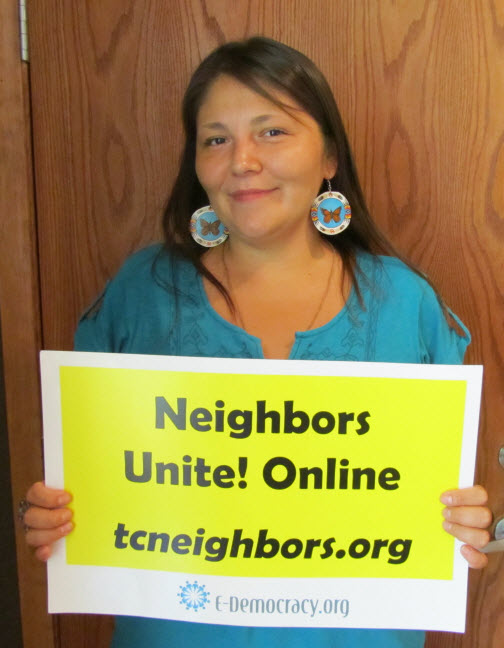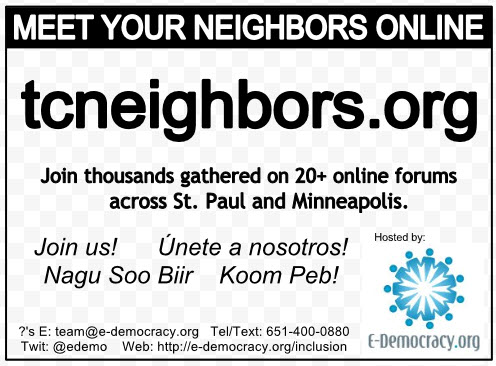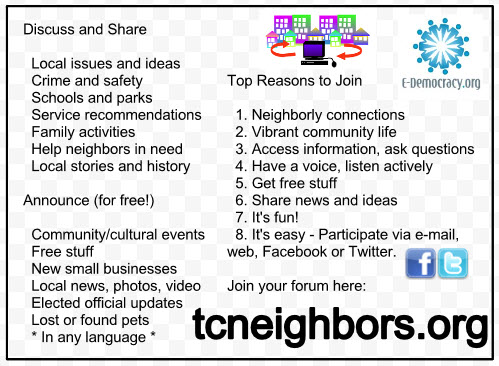Neighbors & communities connecting through technology
Tips, Tools, Strategies, and Technology
Say, noting the UK, examples, definitely check out the Networked Neighbourhoods project and their study.
I agree with much of what they say except that we find the trust-building value of real names trumps the few positives and major negatives from anonymous or alias-based local networks - except potential in high high crime areas where the retribution from online organizing could be severe.
Also check out Harringay Online and the slightly more journalism-centric community sites effort Talk About Local. (IMHO, anything with a blog editor in the center is more journalistic and less many to many.)
Finally, here are our two most active Neighbours Forums in the UK in Bristol and Oxford.



